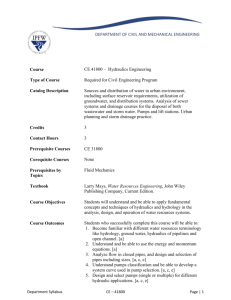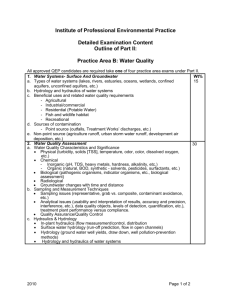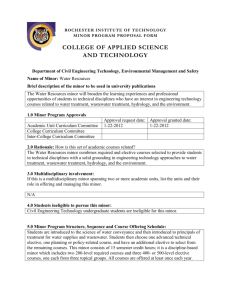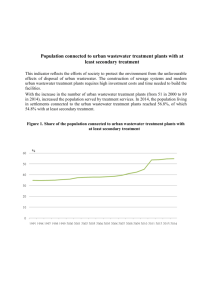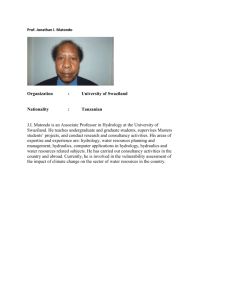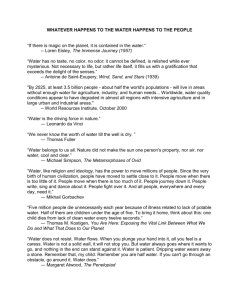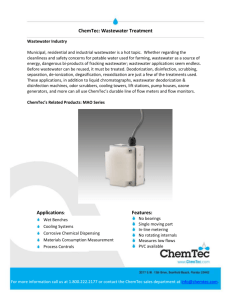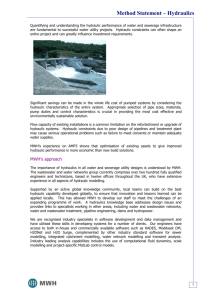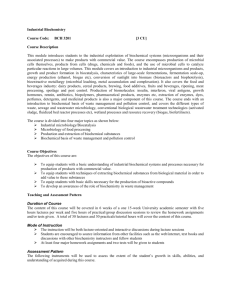Module Title : Advanced Water Resources Lecturer : Ko Ik Hwan
advertisement
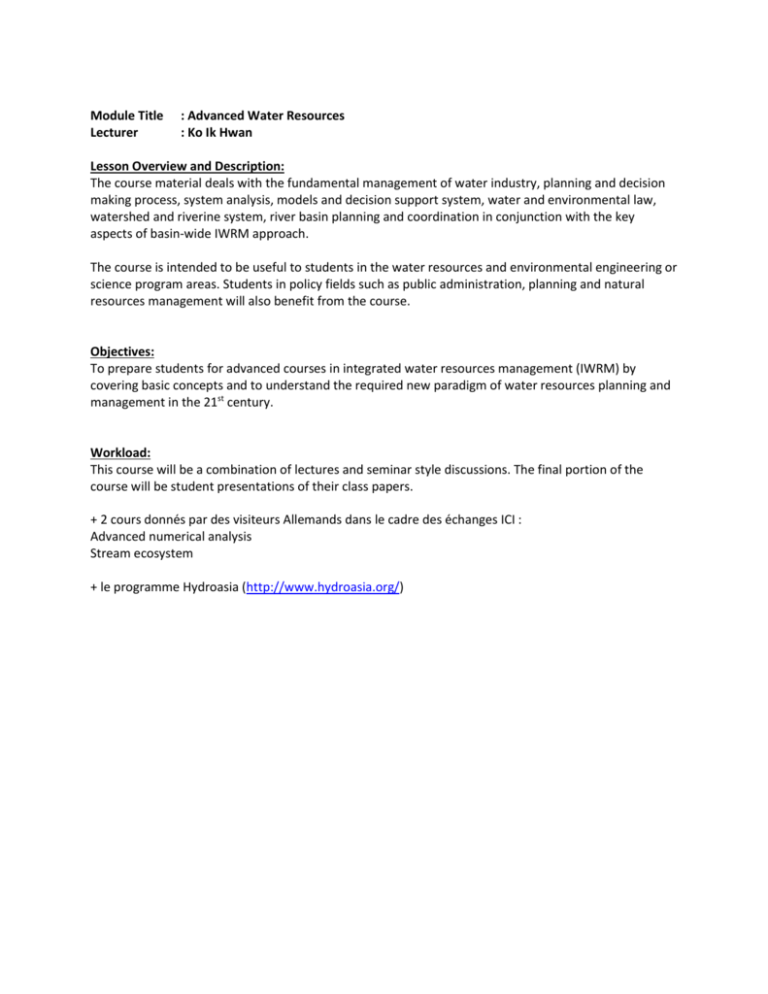
Module Title Lecturer : Advanced Water Resources : Ko Ik Hwan Lesson Overview and Description: The course material deals with the fundamental management of water industry, planning and decision making process, system analysis, models and decision support system, water and environmental law, watershed and riverine system, river basin planning and coordination in conjunction with the key aspects of basin-wide IWRM approach. The course is intended to be useful to students in the water resources and environmental engineering or science program areas. Students in policy fields such as public administration, planning and natural resources management will also benefit from the course. Objectives: To prepare students for advanced courses in integrated water resources management (IWRM) by covering basic concepts and to understand the required new paradigm of water resources planning and management in the 21st century. Workload: This course will be a combination of lectures and seminar style discussions. The final portion of the course will be student presentations of their class papers. + 2 cours donnés par des visiteurs Allemands dans le cadre des échanges ICI : Advanced numerical analysis Stream ecosystem + le programme Hydroasia (http://www.hydroasia.org/) Module Title Lecturer : Computation Hydraulics : Choi Gyewoon Lesson Overview and Description: The course material deals with: 1. Methods and theoretical aspects Includes fluid mechanics, numerical methods, deterministic approaches in hydrology, sensitivity analysis in modelling, calibration & validation, data mining techniques, statistics of extreme events, stochastic approaches in hydrology, grid computing, ubiquitous computing, GIS and virtual reality. 2. Software engineering and computing Includes hydroinformatics systems design, distributed grid computing, ubiquitous and pervasive computing, distributed workflows, services for devices, virtual reality, web-based platform, collaborative environments and decision support systems 3. Sustainable watershed & river management Includes hydrological modelling (various approaches), hydraulics modelling (1D, 2D, & 3D), rainfall distribution estimation, hydraulics works design and regulation, dams and reservoirs design and management, floods, droughts, irrigation, groundwater management, sediment transport, simulation of extreme events, water uses management, economical analysis, policy making and implementation, decision support systems. In summary, this class will discuss topics like sustainable watershed & river management (methods and theoretical aspects) as well as computation and software engineering. The course is intended to be useful to students in the water resources and understanding of mathematical and physical concepts of the flow hydraulics in a system. Objectives: To prepare students for develop of mathematical and physical concepts systematically for computational hydraulics. By learning to use programming methods to calculate various water flows, students will have a better understanding of the relation between theory and practical concepts. The students will also have a better understanding about water flow conditions and the required boundary conditions to analyze that. The basis of water network composition and necessary condition of basis water network will also be discussed. Workload: This course will be a combination of lectures and computer programming. There will be a mid-term test as well as a final exam at the end of the semester. In additional, there will be a term project where teams of 3 will discuss about the Han estuary about a self-chosen topic and the methodology to solve the proposed problem. Each team shall be evaluated through the presentation at the end of semester. Module Title Lecturer : Environmental Sanitary Engineering : Jeon Jong Tae Lesson Overview and Description: The course deals with wastewater treatment theory, which include fundamentals of microbiology, elements of public health microbiology, process microbiology, biotransformations and toxic impact of chemicals in wastewater treatment plants, and the health aspects of the disposal of wastewater effluents and sludges on land and in the marine environment. In the process microbiology section, each biological treatment process is covered from both the process microbiology and public health view points. The course is intended to be useful to students for understanding of wastewater treatment theory and wastewater treatment plants through field observation. Objectives: To prepare students for advanced courses in wastewater treatment and environmental biotechnology by covering basic concepts as well as to have a better understanding of the required new paradigm of environment in the 21st century. Workload: - Class Paper - Homework - Class Participation : 50% : 30% : 20%
